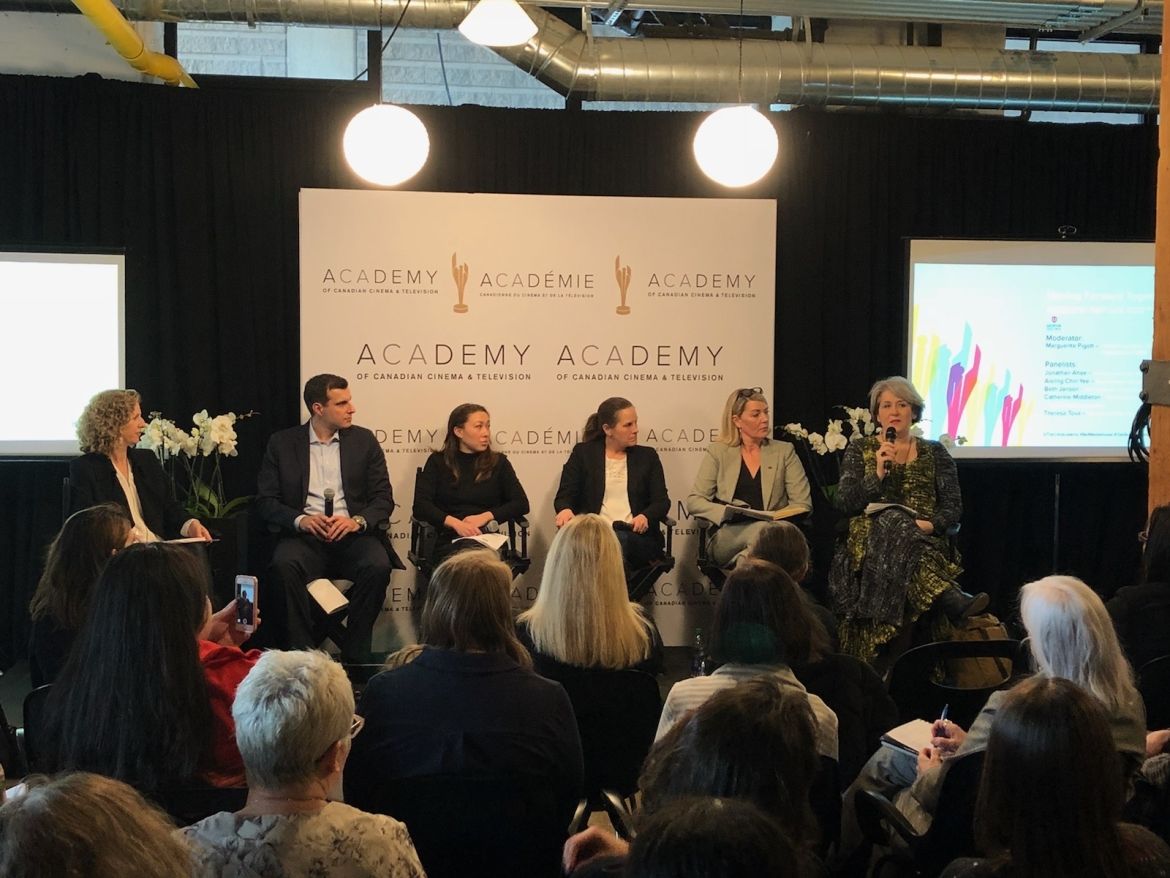
Share
Dozens of Unifor members were honoured for their work at the Canadian Screen Awards, March 6 - 11 in Toronto, with some using the opportunity to highlight the crisis in local news rooms across Canada.
“Newspapers are closing and newsrooms are cutting jobs,” said Jerry Dias, National President. “We have to stop the erosion of local news before it is too late.”
Unifor members at Global News in Edmonton took top prize for Best News Special, beating out three network specials, demonstrating the importance of local coverage.
Their special, “Fort McMurray: The Road Back,” took viewers back on an emotional journey to show the community rebuilding after the devastating 2016 wildfire.
“Local news matters, and we all have to work to make sure this local news category is here next year and the year after that, so please follow #SaveLocalNews,” said Natalie Clancy, Unifor Communications Representative, as she accepted the award for Best Local Newscast, for her work with her previous employer.
#SaveLocalNews is the hashtag for Unifor’s Media Action Campaign that is promoting a petition demanding the federal government level the playing field by taxing tech giants Google and Facebook to save Canadian media jobs.
Nearly 4,000 broadcasting jobs and thousands more newspaper jobs have been lost in Canada since 2012.
#AfterMeToo is another hashtag gaining momentum during screen week, promoting a campaign to end sexual misconduct in the media industry.
Unifor Local 700M, which represents film, television, and new media technicians has worked with other unions to create an industry-wide code of conduct that has been signed by several media companies and unions, including Unifor.
“It’s time to make sure unwanted sexual attention, inappropriate comments, and other unwelcome behavior are not tolerated on film sets, casting auditions, or production studios” said Dias.
“There are particular challenges in fighting harassment in the media sector,” said Lisa Kelly, Director of Unifor’s Women's Department. “Harassment is about power and we know that many of our members work under precarious conditions and an enforceable code of conduct will help address an issue that undermines women's equal access to the workplace.”
Local 700M also celebrated International Women’s Day by sponsoring a day of seminars featuring industry leaders and candid discussion on how to create a harassment-free media industry.
“We wanted to celebrate the amazing work of our award winning female members and many other strong talented female creators from across the industry,” said Jonathan Ahee, President, Nabet 700M Unifor.
A podcast with five women nominees was recorded on March 8, followed by seminar on best practices for creating policies to address sexual misconduct and harassment in the film, television, and digital media sector in Canada.



